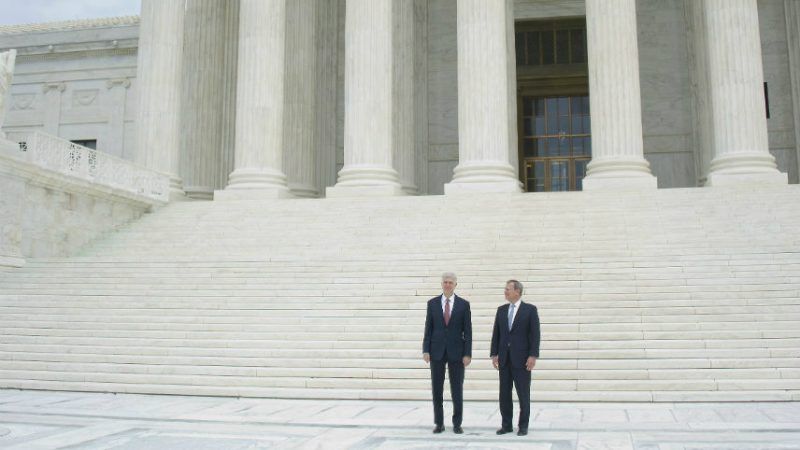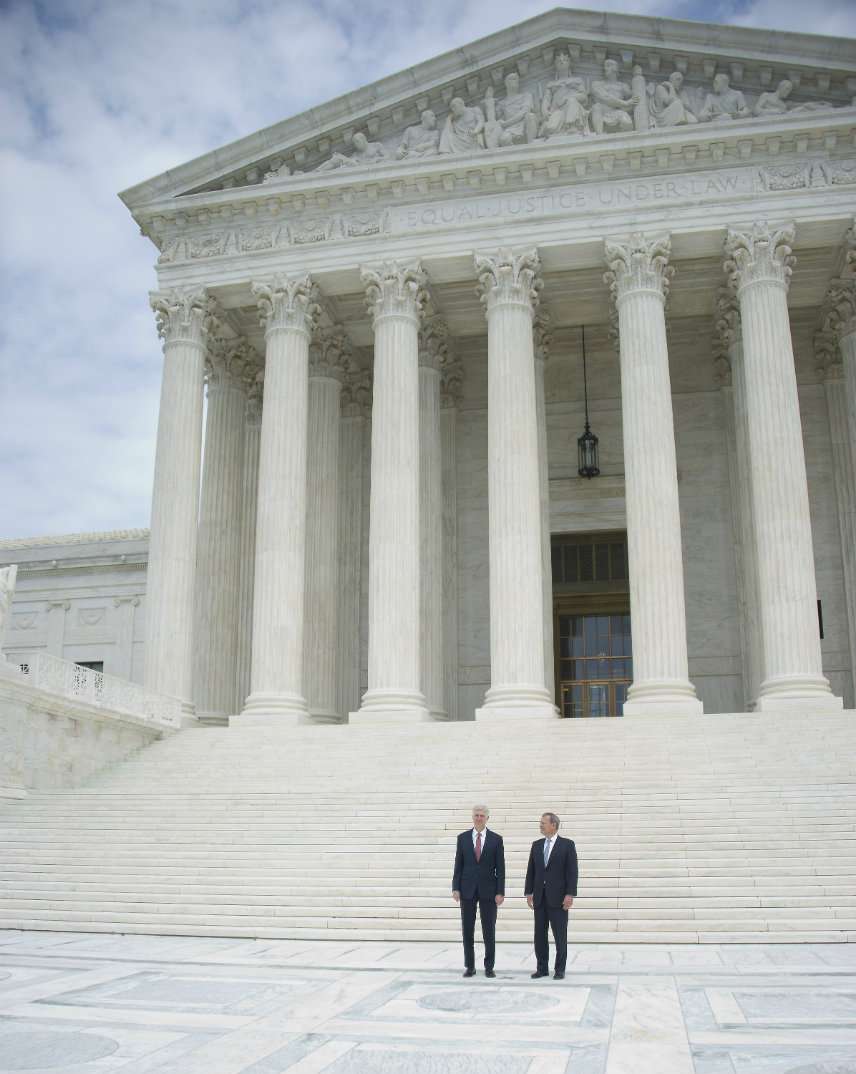The Roberts Court Has Been a Free Speech Champion
Liberals and others will often find fault with the court, as well as Trump. But thanks to the justices, they will have a wide berth to complain.


Barack Obama had his share of poor decisions and outright failures. One of his worst moments came during his 2010 State of the Union address. With six justices seated in front of him, he upbraided the Supreme Court for a decision on campaign finance regulation.
"With all due deference to separation of powers," he said, "last week the Supreme Court reversed a century of law that, I believe, will open the floodgates for special interests, including foreign corporations, to spend without limit in our elections." It was a rude breach of protocol, inducing Justice Samuel Alito to shake his head and mouth, "Not true."
Obama's first sin was being disrespectful to justices who were there out of respect to his office. His second was a bad prediction. The legendary First Amendment lawyer Floyd Abrams has found that of the $2.76 billion raised in the 2016 presidential election, corporations and other businesses provided only $67 million—2.4 percent. Finally, Obama failed to recognize the sound principles underlying the decision.
The Citizens United decision has been portrayed by liberal critics as proof that under Chief Justice John Roberts, the court has become a captive of business interests and right-wing ideologues. But Brooklyn Law School professor Joel Gora, who has served the American Civil Liberties Union as a staff attorney and longtime member of the board of directors, says they are mistaken.
That ruling, he writes, is part of a commendable but unsung pattern. Over the past decade, Gora argues, "the Roberts Supreme Court may well have been the most speech-protective Court in a generation, if not in our history."
He's not alone in this conclusion. Abrams told me the Roberts court has gotten some decisions wrong, but "taken as a whole, it has rendered First Amendment-protective decisions in an extraordinarily broad range of cases, and it deserves great credit for doing so."
Geoffrey Stone, a First Amendment scholar at the University of Chicago Law School who has fiercely criticized the campaign finance ruling, says, "The Roberts court has given more protection to free speech across a larger range of areas than any of its predecessors have -- although sometimes unwisely."
Citizens United, argues Gora, has been unfairly maligned. "Here you had a law which made it a crime to put out a movie criticizing a major candidate for the presidency of the United States," he says. The First Amendment, wrote Anthony Kennedy, "prohibits Congress from fining or jailing citizens, or associations of citizens, for simply engaging in political speech."
Critics say the conservative justices saw it that way because corporate spending tends to favor conservative causes (see: Koch brothers). Some other free speech rulings, says Stone, could also be ascribed to a rightward bias—such as invalidating rules restricting protests at abortion clinics and overturning a law allowing doctors to keep private the medicines they prescribe.
But as Gora notes, many of the court's First Amendment decisions haven't followed that track. It struck down a federal law making it a crime to falsely claim to have won military medals and a California law barring the sale of violent video games to minors.
A court awarded $5 million to the parents of a Marine whose funeral drew demonstrators with signs bearing such offensive messages as "Thank God for dead soldiers." The Supreme Court said the verdict violated the protesters' freedom of speech.
It also ruled against a George W. Bush administration policy requiring overseas groups getting AIDS prevention funds to adopt "a policy explicitly opposing prostitution." None of those decisions fit the policy preferences of conservatives.
The court has sometimes gone wrong on free speech. It upheld a public high school's suspension of a student who brandished a sign saying "Bong hits 4 Jesus," which it took to be a pro-drug sentiment, at a school-supervised event. The court said public employee whistleblowers have no First Amendment protection for anything they say "pursuant to their official duties."
For the most part, though, the court has been a force for freedom of expression. Gora thinks that will be reinforced by the arrival of Neil Gorsuch, who shares the general approach of the court's conservative wing. The new justice indicated in his confirmation hearings that unlike Donald Trump, he has no desire to make it easier for public figures to win libel suits.
Liberals and others will often find fault with the court, as well as Trump. But thanks to the justices, they will have a wide berth to complain.
COPYRIGHT 2017 CREATORS.COM


Show Comments (49)